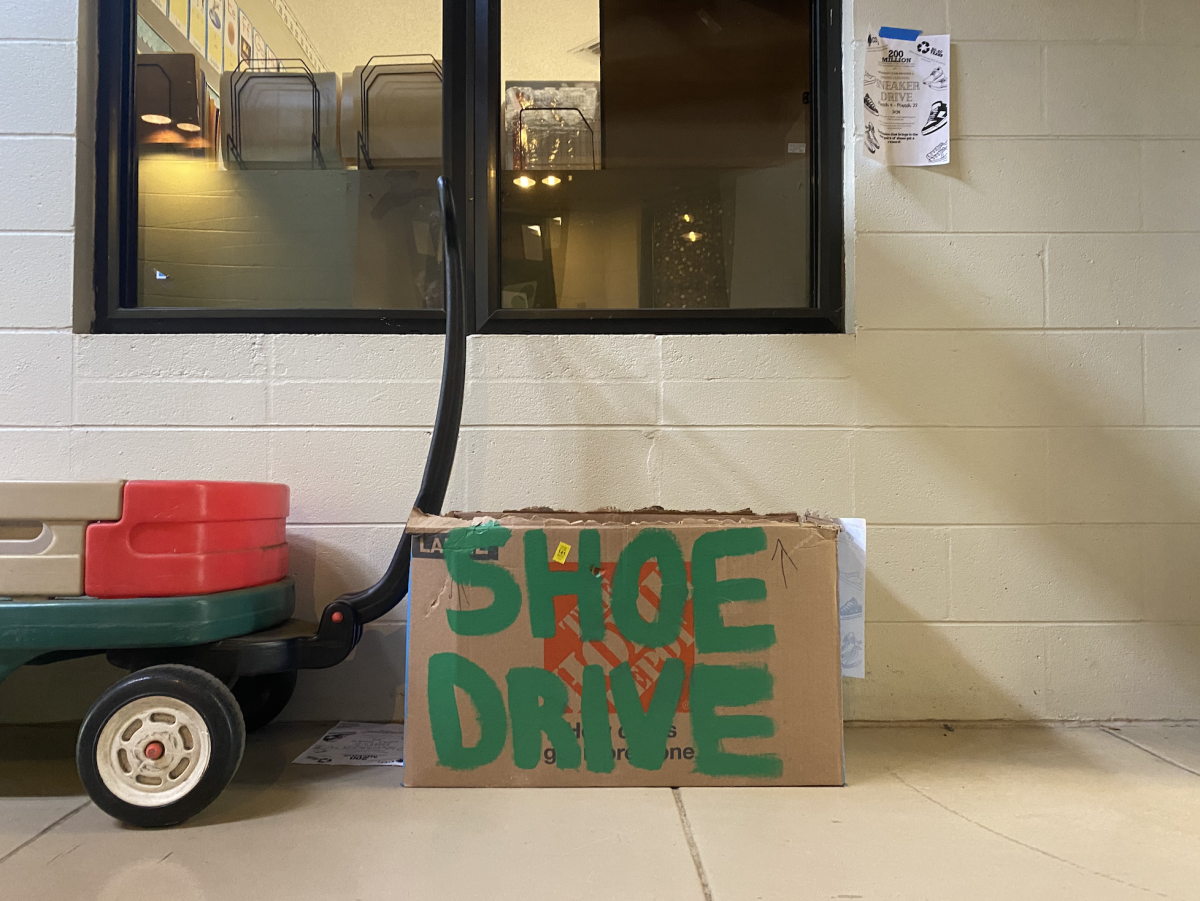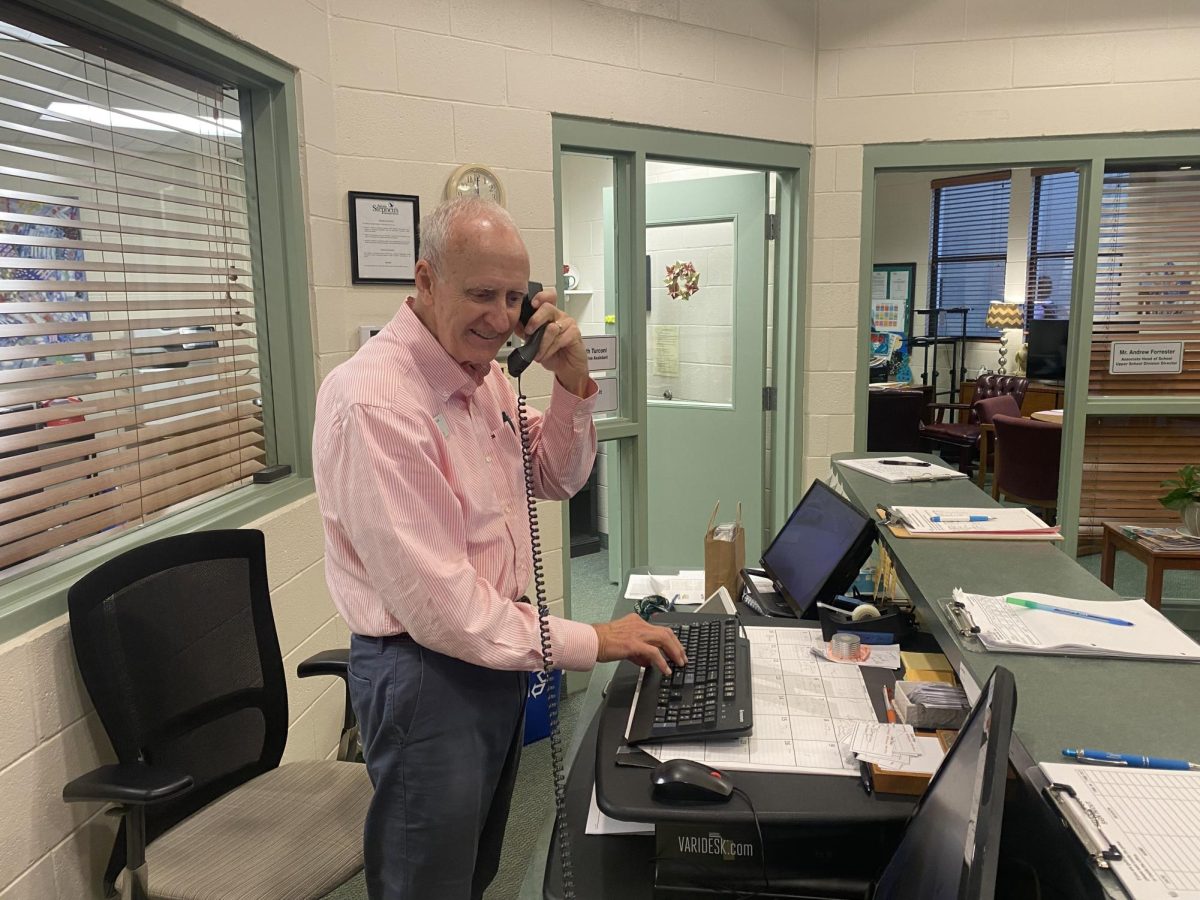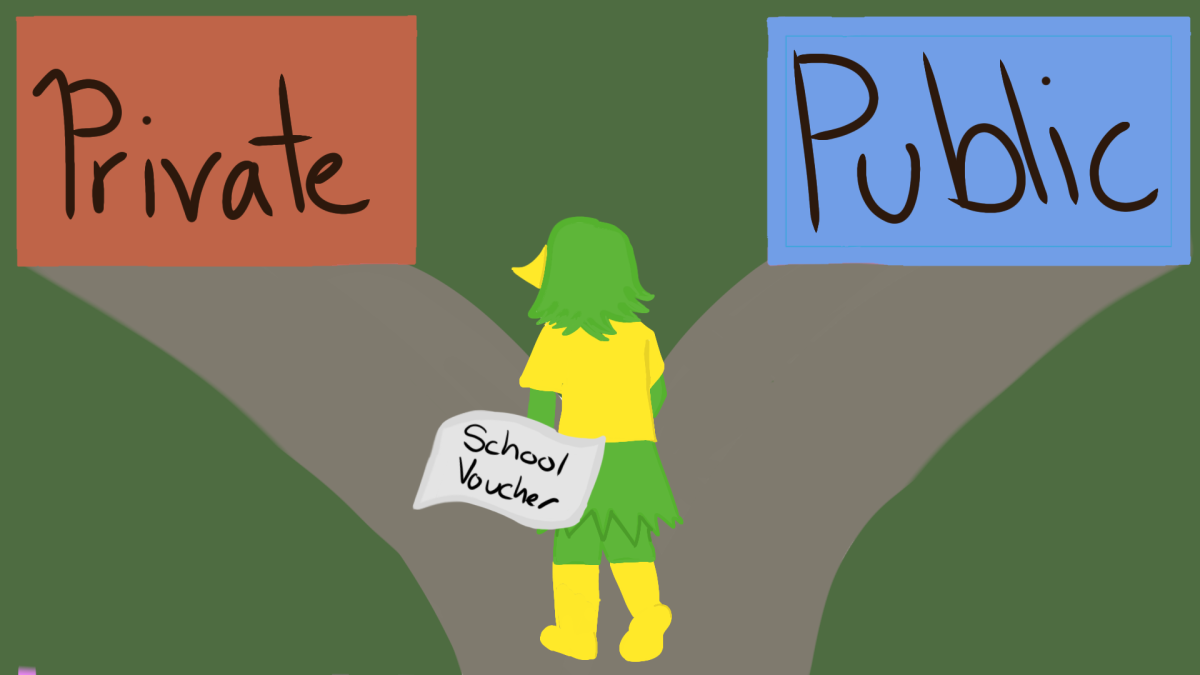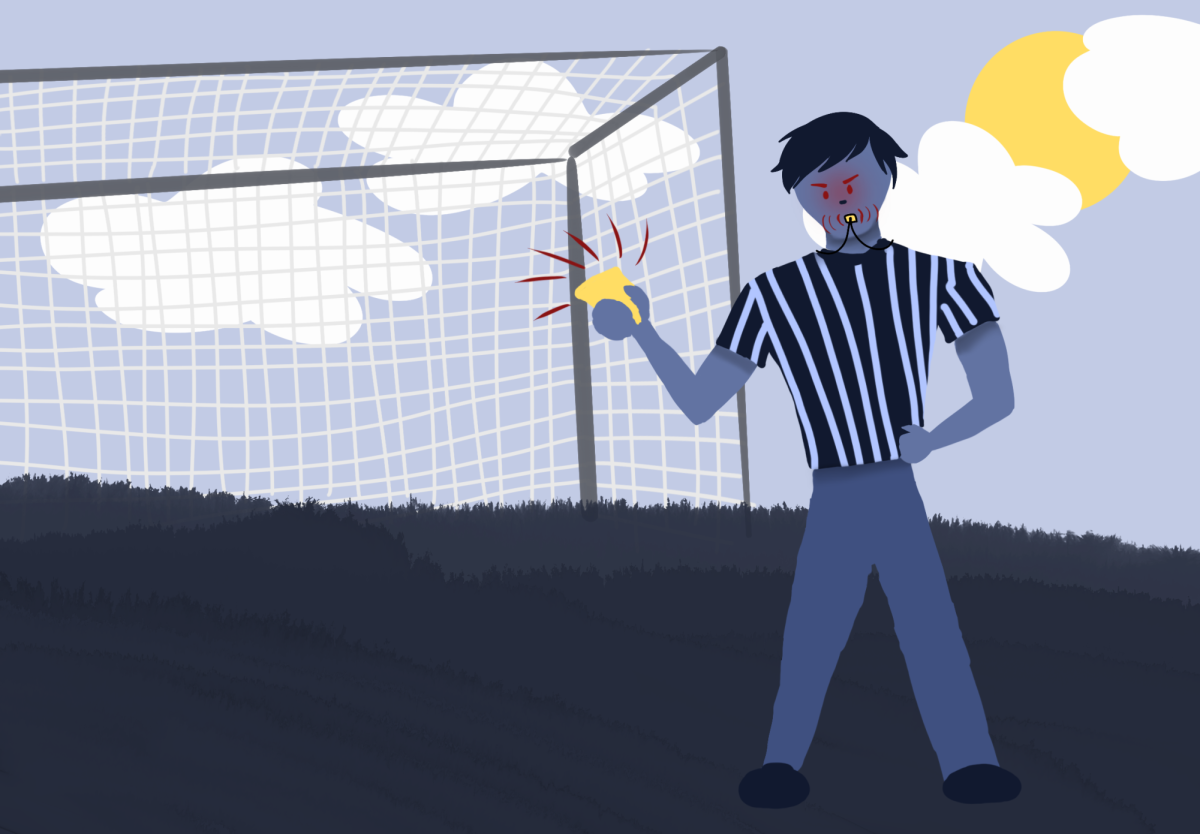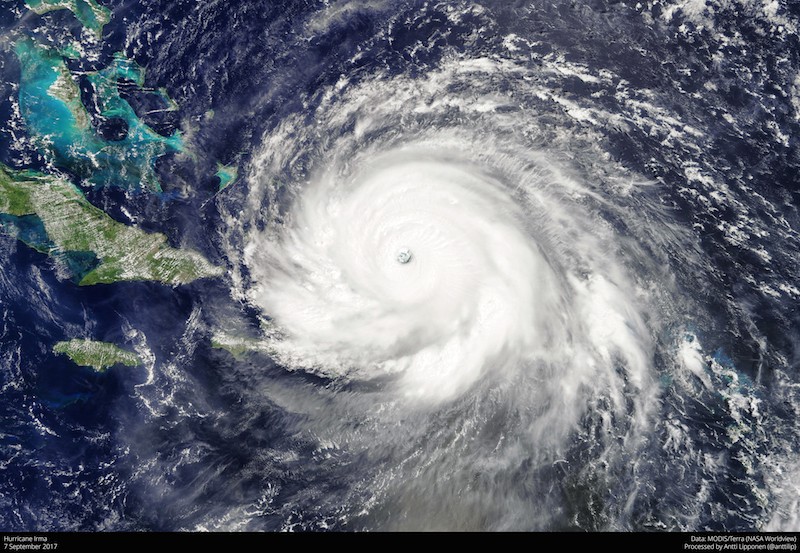Irma hits home. All you need to know about the super-storm
Making its landfall in the Florida Keys and sweeping it’s way across the peninsula on September 10th, Hurricane Irma’s effects will be felt for a long time to come.
September 19, 2017
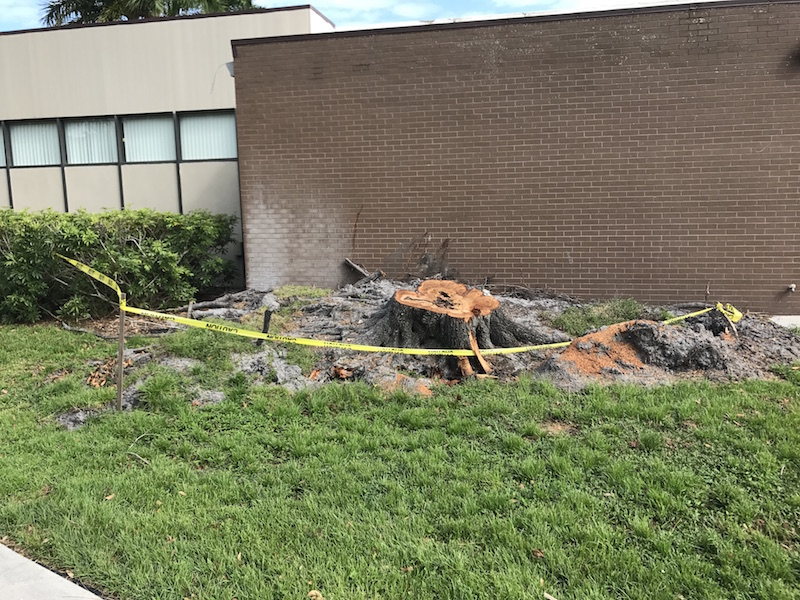
Hurricane Irma took down a tree near the intermediate school.
After the damage dealt to Texas by Hurricane Harvey, many Floridians were unsettled by the news of a hurricane heading towards their state. With hurricane Irma measuring up to be larger than the state of Ohio before it reached the Caribbean citizens rushed to stores to begin checking things off on their hurricane supply lists. As early as Monday September 4th, lines began in many supermarkets as people began to prepare for the category five storm looming in the Atlantic. Similar lines formed at gas stations and lumber yards as people searched for anything to help better prepare their homes. Many people left the state after hearing news of the devastation it caused in the Caribbean and fleeing to the Appalachians for higher ground and scenic views while they waited for the storm to pass.
Saint Stephen’s families took approached the storm in varied ways when it came to safety from the storm. Sophomore, Jacob Whorf said, “My family and I went to North Carolina… We figured that was the best plan to stay safe from the path of the storm.” His family was one of the many Saint Stephen’s families that decided to leave the state seeking for safety. Samson Yang said, “My family and I did not evacuate, we thought the best decision was to stay calm and avoid as much chaos as possible.” Yang, as well as a good majority of the Saint Stephen’s families stayed home and waited out the storm. Whether families decided to stay or evacuated, they will face the lasting effects of the storm.

After hurricane Harvey hit the Houston area of Texas on August 25th and dropped feet of rain onto the area displacing many people from their homes. While FEMA estimates that 450,000 of those people who were displaced from their homes will seek federal aid, estimates of the number of people displaced by Hurricane Irma will not be as high as Harvey but it is too early to give accurate estimates. That said, the program’s $24 billion debt looks as if it will only grow. With FEMA already in debt, many people are lead to question “How should the government change its approach in funding programs like FEMA?”
Mr. Yanelli, the Upper School Economics teacher answered this question by noting, “Throughout human history, governments around the world have a habit of reacting to crises rather than anticipating of planning for them, and the underfunded FEMA program is a case and point.”
More specifically, the disaster program had previously racked up $24 billion in debt prior to Hurricane Harvey and Hurricane Irma further straining FEMA’s already thin resources. Preparing for storms and other natural disasters like these in advance is easier said than done. Yanelli added “that to better plan for the future, the federal government has a variety of options. For example, it could further restrict new development in those areas already labeled as flood prone, or it could possibly implement a special national sales tax to fund FEMA, or charge people along the coastlines higher rates to obtain flood insurance because, at present, the heartland of America is effectively subsidizing insurance costs for those who live along the coasts.”
These and other potential approaches are ways in which our government could ensure it can help victims to its fullest extent. According to Yanelli, “while numerous shelters in both Texas and Florida have recently shown great acts of kindness and heroism, many lacked sufficient funding and space to meet the needs of all of those who desperately required help.”
Outside of FEMA’s recent relief efforts, hurricanes such as Harvey and Irma can lead to issues in local economies. According to Yanelli, “The negative consequences of such storms are tremendously disruptive locally, and especial devastate the poor who are more likely to lose housing and cars, and, as a result, their employment opportunities”.
In addition, lingering problems locally may include, long lines at the grocery store, shortages in fuel,and power outages (over 15 million were without power in Florida days after Irma made landfall). Additionally, with small businesses forced to stay closed until power is restored, it is possible that some of these businesses not be able to keep operating as their profits grind to a halt. Moreover, while utility companies working around the clock to restore power to Floridians, some counties in Florida lack running water. This particular issue, will likely raise the demand for water even higher than the normal post-hurricane peaks, as people will need it for hygiene as well as cooking purposes.
These negative consequences are ones our government will need to create solutions for. “There are no easy solutions to these vexing problems. As such, whatever solutions the federal, state, and local governments decide to implement to shore up FEMA and other relief agencies, they should always have a long-term focus. All that being said, for those who survived both Hurricane Harvey and Hurricane Irma, we owe tremendous debt of gratitude to the federal, state and local government officials who, along with many selfless volunteers (including neighbors helping neighbors), went well above the call of duty to keep people safe and alive. Americans have a wonderful habit of banding together during times of crises, and we thankfully have seen countless examples of that phenomenon during two major storms in the Gulf of Mexico this year.”
Floridians can only wait as the economic impacts of Hurricane Irma will take some time to manifest themselves. Many are now shifting their focus to fixing their properties and accounting for the damages of the storm. While some are suffering from dramatic changes the storm brought. Hurricane Irma has affected many of the Caribbean nations as well as the state of Florida and programs such as American Red Cross are already starting relief efforts. For now, we can work together to help rebuild and work towards better preparing one another for future disasters in our area. No one will forget Hurricane Irma any time soon.



